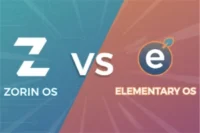32-bit vs 64-bit: What’s the Difference and Why It Matters
Published: 17 Apr 2025
When choosing a computer or installing software, you may come across the terms “32-bit” and “64-bit.” These refer to how a computer’s processor handles data. The difference may seem small, but it affects system speed, performance, and compatibility.
Understanding 32-bit and 64-bit systems helps you pick the right device, software, or operating system for your needs. Let’s explore how these two versions differ in terms of architecture, memory support, software compatibility, and performance.
Differences between 32-bit and 64-bit
Let’s discuss all the differences between 64-bit and 32-bit in detail to choose best device:
1. CPU Architecture
The structure of the processor is where the major difference begins.
32-bit:
- Processes 32 bits of data at a time.
- Has fewer registers in the CPU.
- Suitable for older or less demanding systems.
- More limited in terms of speed and performance.
- Common in older computers or low-powered devices.
64-bit:
- Processes 64 bits of data at once.
- Can handle more complex instructions and calculations.
- More powerful and efficient than 32-bit CPUs.
- Supports advanced computing tasks.
- Found in most modern computers and smartphones.
2. Memory Support
How much RAM each type can use is a big factor in performance.
32-bit:
- Supports up to 4GB of RAM only.
- Cannot access memory above the 4GB limit.
- Slower performance when handling multiple tasks.
- Limited for gaming, editing, or multitasking.
- Not ideal for running modern software smoothly.
64-bit:
- Supports over 18 million TB of RAM (theoretical).
- Allows more RAM usage for better multitasking.
- Ideal for heavy software and large files.
- Better performance in modern computing tasks.
- Common in high-performance computers.
3. Software Compatibility
Different types of software are built for different architectures.
32-bit:
- Runs only 32-bit applications.
- Cannot run 64-bit software.
- Still supported by some older apps and tools.
- Good for light or basic software.
- Less future-proof as developers move to 64-bit.
64-bit:
- Runs both 32-bit and 64-bit apps (on most systems).
- Supports modern apps and games.
- Provides better performance for 64-bit programs.
- More compatible with today’s software needs.
- Preferred by developers for future support.
4. Operating System Support
The OS you install also depends on the system architecture.
32-bit:
- Can only install 32-bit operating systems.
- Not compatible with 64-bit OS versions.
- Older OS versions are still available in 32-bit.
- Not supported in newer updates.
- Becoming outdated in modern computing.
64-bit:
- Can install both 32-bit and 64-bit OS (hardware dependent).
- Offers better security and features.
- Supports modern operating systems like Windows 10/11 64-bit.
- Recommended for long-term use.
- More stable for future software upgrades.
5. Performance and Efficiency
Performance levels vary greatly between the two.
32-bit:
- Slower and less efficient with large files.
- Takes longer to complete tasks.
- Struggles with multitasking or resource-heavy apps.
- Suitable for basic computing like web browsing or word processing.
- May lag or freeze during heavy use.
64-bit:
- Faster processing of data and instructions.
- Handles heavy tasks like video editing and gaming better.
- More reliable under stress or multitasking.
- Boosts system speed and responsiveness.
- Ideal for modern professional and personal use.
Quick Comparison Table: 32-bit vs 64-bit
Here’s a quick comparison table of 64-bit vs 32-bit.
| Feature | 32-bit | 64-bit |
| Data Processing | 32 bits at a time | 64 bits at a time |
| RAM Support | Up to 4 GB | Over 4 GB (theoretically up to 18.4 million TB) |
| Software Compatibility | Only 32-bit software | Both 32-bit and 64-bit software |
| Performance | Slower with modern apps | Faster and more powerful |
| OS Compatibility | Works with 32-bit OS only | Works with 64-bit OS and apps |
Which is Better: 32-bit or 64-bit?
The clear winner for most users today is the 64-bit system. It provides better performance, supports more memory, and runs modern applications smoothly. 32-bit systems are now outdated and only useful for older machines or lightweight tasks. If you’re buying a new device or upgrading software, go for 64-bit—it’s faster, more efficient, and future-ready.
Conclusion
The difference between 32-bit and 64-bit systems might seem technical, but it plays a big role in your computer’s performance. While 32-bit was once standard, it’s now being replaced by 64-bit due to better speed, memory support, and compatibility.
For running modern software and multitasking smoothly, 64-bit is the best option. Whether you’re choosing an operating system or upgrading hardware, going with 64-bit ensures you’re ready for future demands and better system efficiency.
FAQs about 32-bit vs 64-bit
Here are some of the most FAQs related to 32-bit and 64-bit:
No, a 32-bit processor cannot support a 64-bit operating system. You must upgrade your hardware to use it.
Yes, most 64-bit systems support 32-bit applications, unless the software has special compatibility issues.
64-bit is faster and more efficient because it can process more data and use more memory.
Yes, for modern usage. However, 32-bit can be useful for older systems and lightweight tasks.
Yes, but only if your processor supports 64-bit. You’ll also need to reinstall the operating system.
Some users still have older systems that only support 32-bit, so developers provide both versions.
You can check system information in your device settings under the “System Type” section.
Yes. To use more than 4GB of RAM, you must have a 64-bit processor and operating system.
Yes, many software and hardware providers are phasing out 32-bit support.
Yes, most modern smartphones and tablets now use 64-bit processors for better performance.

- Be Respectful
- Stay Relevant
- Stay Positive
- True Feedback
- Encourage Discussion
- Avoid Spamming
- No Fake News
- Don't Copy-Paste
- No Personal Attacks

- Be Respectful
- Stay Relevant
- Stay Positive
- True Feedback
- Encourage Discussion
- Avoid Spamming
- No Fake News
- Don't Copy-Paste
- No Personal Attacks





